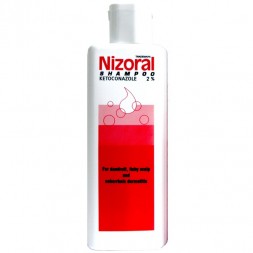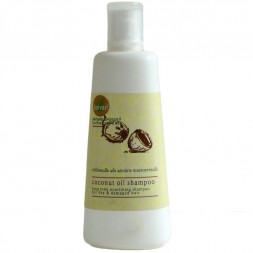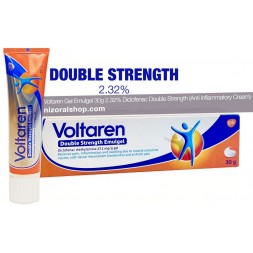
Fungal infections and scalp conditions such as dandruff and seborrheic dermatitis can be challenging to manage. Two popular treatments are Nizoral Shampoo 2% Ketoconazole and oral antifungal medications. This comprehensive guide explores the benefits and drawbacks of both treatments, helping you decide which is more effective for your needs.
Understanding the Basics
Nizoral Shampoo contains 2% Ketoconazole, a potent antifungal agent that targets the root cause of dandruff and seborrheic dermatitis. It works by reducing the growth of fungi on the scalp, thereby alleviating symptoms like itching, flakiness, and redness. On the other hand, oral antifungal medications are systemic treatments that work throughout the body to eliminate fungal infections. Common brands include Diflucan (fluconazole), Lamisil (terbinafine), and Sporanox (itraconazole).
Benefits of Nizoral Shampoo 2% Ketoconazole
- Targeted Treatment: Nizoral Shampoo is applied directly to the scalp, ensuring that the active ingredient, ketoconazole, reaches the affected area quickly and efficiently.
- Reduced Side Effects: Topical application minimizes the risk of systemic side effects that are more common with oral medications.
- Convenient Use: Incorporating Nizoral Shampoo into your regular hair care routine is simple and hassle-free. Use it just twice a week for optimal results.
- Effective for Mild to Moderate Cases: Nizoral Shampoo is highly effective for treating mild to moderate cases of dandruff and seborrheic dermatitis.
- Facial Use: Some users have found Nizoral Shampoo effective for treating facial seborrheic dermatitis and fungal acne by using it as a face wash.
Benefits of Oral Antifungal Medications
- Systemic Action: Oral antifungals treat fungal infections throughout the body, making them suitable for severe or widespread infections.
- Comprehensive Treatment: These medications can address multiple fungal infections simultaneously, which is beneficial for individuals with more than one type of fungal infection.
Drawbacks of Nizoral Shampoo
- Limited to Scalp: Nizoral Shampoo is primarily designed for scalp conditions and may not be effective for fungal infections on other parts of the body.
- Requires Regular Use: Consistent application is necessary to maintain its effectiveness, which may be inconvenient for some users.
Drawbacks of Oral Antifungal Medications
- Systemic Side Effects: Oral antifungals can cause a range of side effects, including gastrointestinal issues, liver toxicity, and interactions with other medications.
- Prescription Required: Most oral antifungals require a prescription, which means a visit to the doctor is necessary.
- Longer Treatment Duration: Oral treatments often require a longer duration to see results, compared to topical solutions like Nizoral Shampoo.
Diflucan (Fluconazole)
Benefits:
- Effective for Various Fungal Infections: Diflucan is used to treat a wide range of fungal infections, including those affecting the mouth, throat, esophagus, and urinary tract.
- Once-Daily Dosing: Simplifies the treatment regimen for patients.
Drawbacks:
- Liver Toxicity: Fluconazole can cause liver damage, particularly with long-term use or in patients with pre-existing liver conditions.
- Drug Interactions: Fluconazole can interact with a variety of medications, including blood thinners and certain antibiotics.
- Side Effects: Common side effects include nausea, headache, and abdominal pain.
Lamisil (Terbinafine)
Benefits:
- Highly Effective for Nail Fungal Infections: Terbinafine is considered a first-line treatment for onychomycosis (nail fungus).
- Shorter Treatment Duration for Skin Infections: Compared to other antifungals, Lamisil can be effective in shorter courses for skin infections.
Drawbacks:
- Liver Damage Risk: Terbinafine can cause liver damage, necessitating regular liver function tests during treatment.
- Systemic Side Effects: These include taste disturbances, gastrointestinal issues, and potential skin reactions.
- Drug Interactions: Terbinafine can interact with a variety of medications, including antidepressants and heart medications.
Sporanox (Itraconazole)
Benefits:
- Broad-Spectrum Antifungal: Effective against a wide range of fungal infections, including those that are resistant to other treatments.
- Pulse Dosing Option: Pulse dosing regimens can reduce the risk of side effects and improve patient compliance.
Drawbacks:
- Cardiac Risks: Itraconazole can cause serious heart issues, including heart failure, especially in patients with pre-existing heart conditions.
- Liver Toxicity: Similar to other oral antifungals, Sporanox can cause liver damage.
- Drug Interactions: Itraconazole interacts with many medications, including certain statins, anticoagulants, and antiarrhythmics.
- Side Effects: Common side effects include nausea, vomiting, diarrhea, and abdominal pain.
Side-by-Side Comparison: Nizoral Shampoo vs. Oral Antifungals
| Feature | Nizoral Shampoo 2% Ketoconazole | Diflucan (Fluconazole) | Lamisil (Terbinafine) | Sporanox (Itraconazole) |
| Application | Topical | Systemic | Systemic | Systemic |
| Target Area | Scalp, Face (Seborrheic Dermatitis, Fungal Acne) | Entire Body | Entire Body | Entire Body |
| Side Effects | Mild (e.g., skin irritation) | Moderate to Severe (e.g., GI issues, liver toxicity) | Moderate to Severe (e.g., GI issues, liver toxicity) | Moderate to Severe (e.g., GI issues, liver toxicity) |
| Convenience | Easy to incorporate into routine | Requires doctor's visit and prescription | Requires doctor's visit and prescription | Requires doctor's visit and prescription |
| Treatment Duration | Short (visible results in weeks) | Longer (may take months) | Longer (may take months) | Longer (may take months) |
| Effectiveness | High for mild to moderate cases | High for severe or widespread infections | High for severe or widespread infections | High for severe or widespread infections |
Usage Tips for Nizoral Shampoo
- Follow Instructions: Apply Nizoral Shampoo to wet hair, massage into the scalp, and leave for 3-5 minutes before rinsing thoroughly.
- Consistency is Key: Use the shampoo twice a week for best results.
- Combine with a Gentle Conditioner: To avoid dryness, follow up with a moisturizing conditioner.
- Facial Use: For facial seborrheic dermatitis and fungal acne, use Nizoral Shampoo as a face wash, leaving it on for 1-2 minutes before rinsing.
Conclusion
When it comes to treating scalp conditions like dandruff and seborrheic dermatitis, Nizoral Shampoo 2% Ketoconazole offers numerous benefits with fewer side effects compared to oral antifungal medications. Its targeted action, ease of use, and effectiveness make it a top choice for many individuals. However, for severe or widespread fungal infections, oral antifungals such as Diflucan, Lamisil, and Sporanox may be necessary despite their potential side effects.
For more information and to purchase Nizoral Shampoo, visit Nizoral Shampoo 200ml 7.0 oz (2% Ketoconazole).





